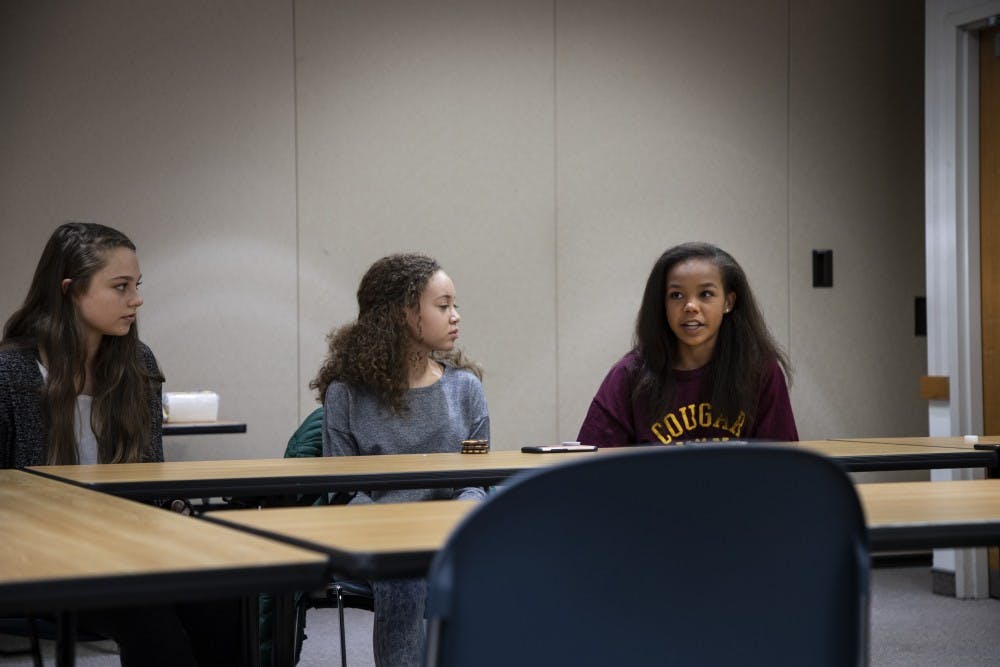Bloomington has a new initiative to better reflect teen perspectives in city decisions.
The Bicentennial Teen Roundtable, a new program through the Commission on the Status of Children and Youth, gathered a group of high school students Sunday to share their feedback with city officials.
The second of four discussions this week focused on their experiences at school. Students discussed the usefulness of their curriculum, how student-athletes are treated and drug problems.
Isadore James Torry, a member of the Commission on the Status of Children and Youth, proposed the roundtable to bridge the disconnect between teen and adults.
“All these older people in Congress are holding back the young people,” said Avery Njau, a student at Bloomington High School North. “As soon as we can get into a position where we can be in power, I feel like stuff will actually change.”
The need to hear from students was clear when moderator Rafi Hasan, equity and inclusion coordinator for Monroe County Community School Corporation, asked students how they felt about school safety.
The group agreed drugs were a bigger problem than guns, based on the amount of drug busts compared to gun threats.
Njau said she quickly learned to navigate safe and unsafe bathrooms at Bloomington High School North. Certain bathrooms are informally designated for smoking and Juuling parties.
“A jewelry party?” Hasan asked.
“No, Juuling!” the students said, laughing.
They were referring to using Juuls, a popular vaping device.
Both North and South students said they felt the ways their schools give punishments are biased. Naomi Young, a junior at Bloomington High School South, said she thinks successful athletes receive preferential treatment.
“I see this happening, but others around them don’t,” Young said.
Many students volunteered for the program after hearing about it from a friend. Students shared knowing looks as they talked about their frustrations.
The students said they wished counselors were more understanding of their stress. They wanted teachers to understand technology and hoped the curriculum would better match their long-term needs.
Students wanted to learn how to do taxes and pay bills. Some thought they should learn how to get jobs and internships.
A few students said they didn’t know how helpful math would be after they graduated.
“The speed limit signs on the highway aren’t going to be in algebraic equations,” said Bloomington High School North freshman Caley Sherrill.
Torry will share recordings and notes from the roundtable meetings with the commission and other city officials.
“When we’re talking about their future, and what life is going to be like for them, we really have to look and see what they want,” Torry said.
A similar program he participated in as a high schooler helped him realize older people valued his opinion, and he wanted Bloomington students to feel the same.
“They need to know that they have a voice,” Torry said.
Beverly Calender-Anderson, director of the Community and Family Resources Department, said the program will likely continue in future years.
The first session was a general overview of Bloomington. The group will look at the community next Sunday, and the final meeting will address how adults can make Bloomington better for young people.




